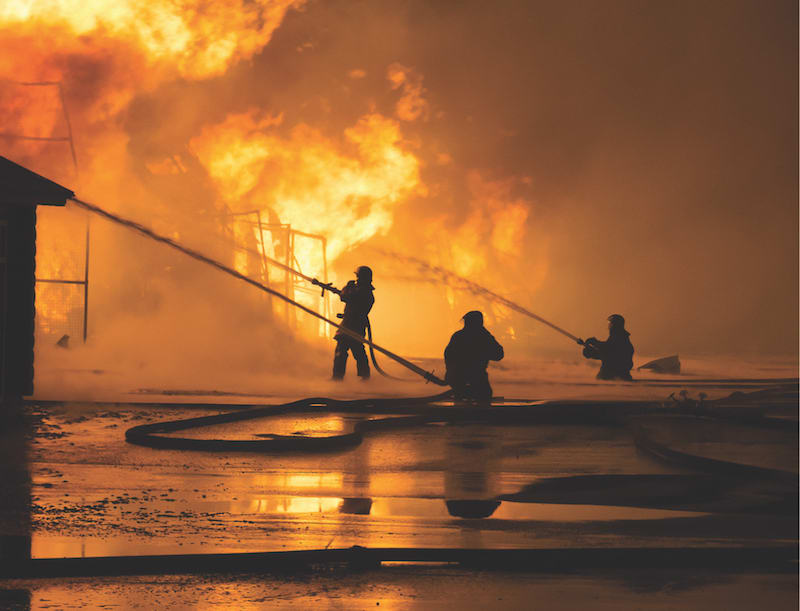
A new patented NASA technology has the potential to utilize recent advances in Radio Frequency Identification Devices (RFIDs) combined with smart software to create an electronic firefighter evacuation trail and fire safety information location system. The trail, with associated capabilities specified by the invention, can be followed out of a burning building even if interrupted by changing fire conditions. The communicating array of sensors created by the invention can monitor local temperatures along the trail, and through inter-communication, provide an information lifeline back to a fire chief. The invention also provides an approach for passive and active RFID sensors to feed location information to 3-D maps of fire environments, alert firefighters to changing unsafe conditions, and upgrade the safety and firefighter accessibility of existing buildings to facilitate future fire fighting activities.
Benefits
* Uses modern, low-cost RFID technology
* Monitors local temperatures
* Improves safety of first responders
* Produces 3-D maps of fire environments
* Alerts first responders to potential hazards
Applications
* Urban firefighting
* Forest firefighting
* Hazard mapping
* Emergency response team equipment
The Technology
The technology could be utilized to protect personnel that work in hazardous conditions, including firefighters. The technology could be utilized to protect personnel that work in hazardous conditions, including firefighters.
The invention provides a sequence of path communicators, based on devices, such as Radio Frequency Identifier Devices (RFIDs), or other suitable signal transmitters (STs) and/or signal receivers (SRs) and/or signal transceivers (STCs). The sensors communicate with each other and define communication paths between a group of persons working in an extreme environment, and sub-systems located in a non-extreme environment. A first RFID signal format provides a preamble, including sensor data for many kinds of sensors, and identifies the source RFID for this information. Later, one or a small group of signals provide location and spatial orientation for an emergency service worker. A thermal sensing RFID then indicates the present thermal condition of the site, relative to sites associated with extreme danger.
-
Awards
-
 2016 Top 100 Entries
2016 Top 100 Entries
Like this entry?
-
About the Entrant
- Name:Kimberly Middleton
- Type of entry:teamTeam members:NASA Langley Technology Gateway
- Patent status:patented

